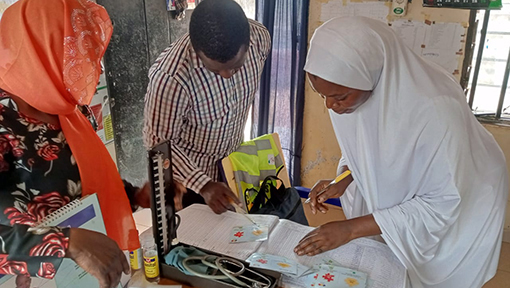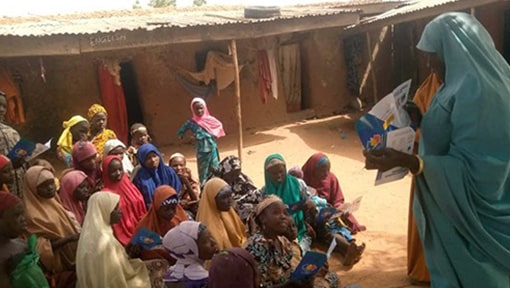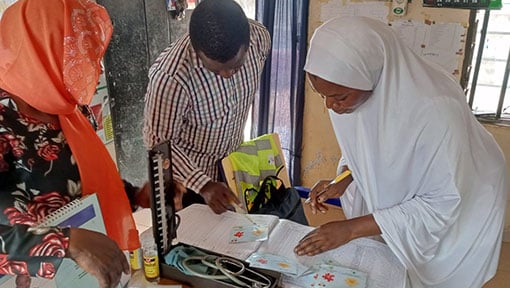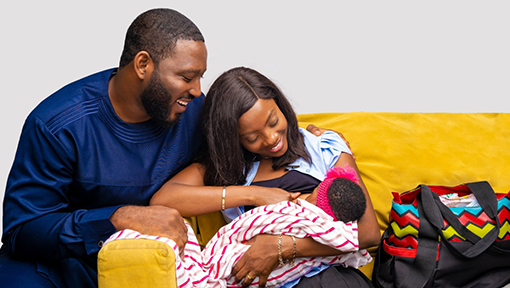Community Dialogues in Arusha City, Tanzania, Help to Engage Men in Their Family’s Health Care
Contributor: Waziri Njau
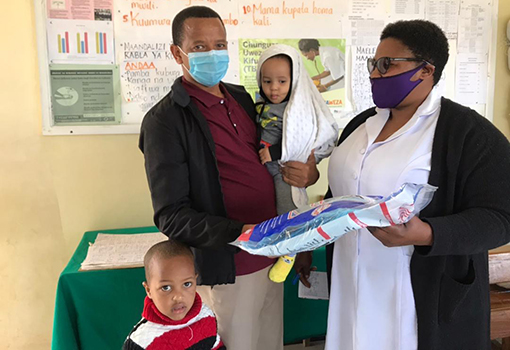
Colina gives a father a mosquito net for bringing his two sons to the clinic for other health care services.
Colina Emanuel Matinya is a registered nurse at the Elerai Dispensary, where she works in the Reproductive Child Health (RCH) clinic as the provider-in-charge. In this role, she makes sure children get vaccinations, deworming pills and any other necessary services required for healthy mothers and children. Due to entrenched social norms in Arusha City, Tanzania – where the Elerai Dispensary is located – very few men attend the clinic to support their wives. Colina explains:
I have been seeing a number of women coming to the clinic without their spouses. When you ask them, they said that they feel shy to be seen by the public doing ‘women’ activities.”
After receiving coaching from The Challenge Initiative (TCI) on its high-impact intervention related to male engagement, she asked women to invite their spouses to community dialogue meetings that she helped arrange. Involving men in maternal and child health is a practice where fathers and male community members actively participate in caring for women and supporting their family to access better health services. In the case of family planning, men can become family planning advocates, support their partner’s use of family planning or become family planning clients themselves.
Colina explains why she did what she did:
To break the barriers, we had to conduct community dialogues, which triggered the attention and attendance of men. We agreed that all men who attend the clinic get a chance to be checked [for] vital signs like blood pressure, sugar levels and BMI [body mass index]. Mosquito nets would also be given to them whenever available. Also, men who come with their spouses get to be served first.”
Several men received the intended message positively from the health facility and started escorting their spouses to the RCH clinic as supportive husbands and champions of their family’s health. Colina noted that she is slowly beginning to see changes:
During the visit to the clinic, men are given chances to express the barriers that they think hinder other men to do so. The community has slowly started to understand that maternal, newborn and child health is not for women only.”
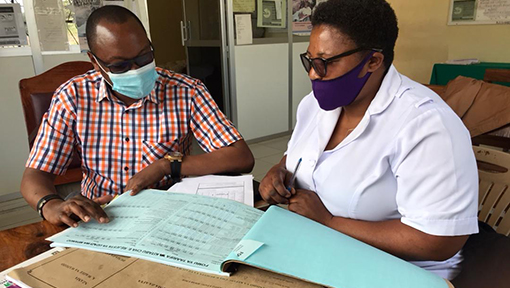
TCI staff viewing a register with Colina (right) that shows the number of mothers who were accompanied by their spouses to the clinic.
This approach is also helping increase access to family planning services. With TCI’s support, the facility intensified its intra-facility integrated in-reaches to help reduce long waiting hours for mothers accessing family planning services with their spouses. And during integrated community outreaches, men were able to access family planning services, such as male condoms and information on other methods available. Colina shared the results of these activities and what she hopes for the future:
In 2020 when we started this program, a total of 156 men showed up with their spouses. After the first quarter of 2021, 257 men escorted their spouses to the clinic. I now totally agree that social grounded norms hinder women to access family planning services in many areas in our country. Men should speak for themselves and not rely on being represented. In addition, community members must acknowledge that power dynamic is based on the men’s side, and there is need for mutual understanding between spouses. If all health care providers will establish and strengthen this program more women will be reached.”

